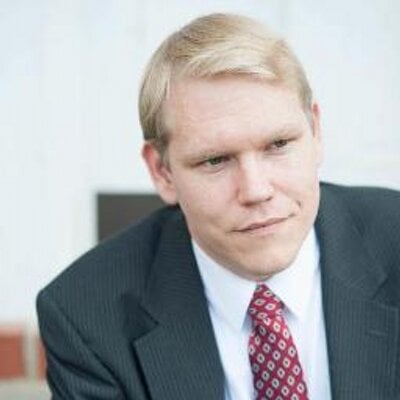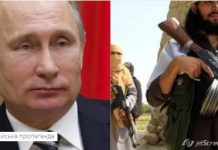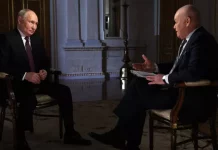
An interview with Peter B. Doran, Vice President of Research at the Center for European Policy Analysis (CEPA). Interviewer: Wojciech Jakóbik
WOJCIECH JAKÓBIK: Is Russia increasing its information warfare activity against NATO?
PETER B. DORAN: We are witnessing the emergence of something new. Information warfare is creating a new kind of battle space. It is an emerging front similar to cyberwarfare. The bad news is that Russia has very sophisticated disinformation techniques; and they are winning.
How can you measure that?
It is now common to see the tropes of Russian disinformation and propaganda in the public discourse of the Western analytical community. That weakens the quality of the policy debate in the expert community. Often, experts do not even realise that they might be channeling an idea that originated from a node of Russian disinformation. Those ideas crop up in the strangest places. They are particularly common when discussing hybrid war.
Could you give any specific example?
Take the concept of “relativism.” You might read that America’s invasion of Iraq was no different from Russia’s invasion of Crimea. It is an attempt to dismiss Western criticism of Russian aggression as being hypocritical. Of course this is propaganda. There is no equivalent between the two. But it is alarming because it is so effective. As long as false ideas are endlessly repeated, they are hard to dispel even when they’re wrong. The good news is that NATO has clearly identified information warfare as a problem. The same is true of the European Union and US government. And identifying solutions to Russian disinformation is what CEPA is doing right now. We have an active information warfare initiative underway. It starts from the assumption the expert community in the United States and parts of Western Europe can learn a lot from journalists, analysts and others who are on the frontline of information war in Central and Eastern Europe. By perfecting the lessons-learned from those who deal with propaganda every day, we can identify methods for better responding to Russia’s sophisticated info war techniques.
Should we expect any solutions coming from NATO summit in Warsaw?
I hope we will see action on two big concepts. The first is that NATO will formally recognise that it faces an emerging threat from Russia. The second is that it is in NATO’s interest to act against it. My concern is that a disproportionate focus will be given to NATO’s southern vector, which is important, but the alliance should avoid the temptation to downplay dangers from the Eastern, Russian vector. The Brussels attack shows that the West is vulnerable to terrorism from ISIS. But we have long since passed the time when NATO or the EU could focus on just one threat at a time. Now we have multiple threats. We cannot say that one of them is more important than another.
After the Brussels attacks can we say that NATO and the EU are obsolete?
No government or alliance can protect everyone against every terrorist attack at all times. That’s the nature of terrorism. Yet one early conclusion from the Brussels attacks that, in the face of terrorism, we need to stand together. A stronger alliance and the enduring bonds between friends can be a powerful weapon against terror.
Does Russia want us to focus on terrorist attacks and the migration wave?
The Russian government is very cynical when it talks about fighting terrorism. When this occurs, Russian officials are reading from an old playbook from the post-September 11th era. Recall that Russia was a partner with the United States in the war on terror back in the early 2000s. But that was a different time. That was before Russia invaded its neighbors and illegally annexed the territory of another European country. Moscow wants the West to focus on terrorism so that it can distract from the fact that Russia has stolen part of Ukraine’s territory. The West should not be distracted, nor forget.
Is Russia really indispensable in solving Middle East crisis?
Russia confused the situation in the Middle East with the injection of its troops and air power into Syria. It has become another player in very complex battlespace.
But they say that they are removing the troops.
That is not entirely true. Russia will maintain a troop presence in Syria. And it maintains an active role in supporting the Assad regime. This intensifies the complexity of already complicated conflict. In Syria, we face a civil war inside a civil war. After the intervention of a new player like Russia, the geopolitical ripples from Syria have only expanded.
So what about US involvement in Europe before and after the elections?
Looking back over the record of the current administration, we can see some good and some bad. On balance there is a deficiency, but I am encouraged by the White House’s European Reassurance Initiative. The US government has put a lot of money on the table to reassure its allies in Europe. The question is where and how that new money will be spent. Will it facilitate the long term deployment of American troops in Central Europe? If the answer is no, then US reassurance will not be effective. Looking ahead, it is always important to remember that foreign policy promises made on the campaign trail do not always result in actual policies after an election. So, what is said by any of the presidential candidates may not always come to fruition. On the Democratic side, I expect Hillary Clinton’s policy toward Europe to be broadly consistent with the Obama administration’s second term. But let’s not forget that it was Clinton who kicked-off the Russia Reset during Obama’s first term. The reset failed completely. Vladimir Putin killed it when he invaded Ukraine. On the Republican side, Ted Cruz has distinguished himself from Donald Trump by being more of an Atlanticist. I would expect to see a Cruz White House act more cooperatively with NATO than a Trump White House. It is hard to talk in absolutes at this point, but under a hypothetical Trump presidency, I would anticipate a significant decrease in US military activity in Europe. Allies take note.
Should we expect any decisions about American troops in Europe, like relocation to Poland, during the Warsaw Summit?
I do not anticipate any serious decisions connected to that issue soon. There are lot of differences within NATO. They are unlikely to be resolved before the Summit.
Russia uses some energy projects to make Europeans fight between each other. The general example can be Nord Stream 2. How and why is Russia using this project?
I think there are commercial and political factors at play. Let’s be clear. Russia needs money. It makes money by selling hydrocarbons to Europe. That is the commercial objective of the project. The problem is that Central Europe, and especially countries like Poland, will never be able to establish a fully free energy market unless they can quit their dependence on Russian supplies. That is why there is an obvious need for diversification away from Russia to other providers. Divide and rule energy politics is nothing new for Russia. Nord Stream 2 is another example of this strategy in action.
How is it influencing the consistency of sanctions policy?
As with all things in Russian politics, there is a strong overlap between foreign and domestic questions. I watch the transatlantic debate on sanctions against Russia like everyone else. And I see clear reasons to keep sanctions in place as long as Russia is occupying parts of Ukraine. As long as the original reason for imposing the sanctions has not changed, then they should remain.
But what about a market approach? Why cannot European companies just make money on Russian gas?
In dealing with Russian energy companies it is important to remember that you are not dealing with a true market option, but a monopoly. There is a clear difference between doing business in a vibrant, competitive energy market, and cutting deals with monopolies which dictate prices, restrict the access of competition, and so on. These are all harms which, according to the EU, Gazprom has allegedly inflicted on European consumers. Now, I do not think it is right for a monopoly to restrict competition. But that is what monopolies like Gazprom do. So there is a lot to be done in terms of increasing supply diversification in Central Europe. I would love to see more U.S. gas exports to come online in Poland but ultimately it is up to the market to decide, not government officials. That’s how the most efficient markets work. It’s up to officials to create the right conditions for the market.
What about TTIP then?
It is a great idea which I fear will not be ratified in the US Senate before Obama leaves office. It is highly debatable if it would be ratified during a hypothetical Clinton presidency either. The odds are worse for TTIP under a Trump presidency. So the future of TTIP likely hinges on the result of our presidential election cycle. There are domestic interests in the United States, which do not want free trade. And the pushback against free trade crosses party lines. While I strongly disagree with this view, it exists all the same. One of the powerful lessons from the past that I examine in my book Breaking Rockefeller (link) is that free market competition and trade was a crucial incentive behind the original switch from coal to oil. Competition made liquid fuel cheaper. In our own day and age, competition and free trade can produce similar positives. And we can get them if we get TTIP right. If we allow companies to compete on a level playing field we will do ourselves a great favor. I would like TTIP to go through, but without any unnecessary regulations that put American companies at an unnatural disadvantage against European firms.
Is Atlantic co-operation under threat?
Atlanticism as we know it is in danger. Now, I am proud Atlanticist. I believe that America and Europe work better together. I believe that Atlanticism created great things in past and can do so in the future. Some people forget what we have gained from transatlantic cooperation. Part of this is natural. The new generation of Europeans born in peaceful times do not remember the contribution that America made to freedom movements during the Cold War. But that’s a legacy we share. And it is one worth preserving.
By Wojciech Jakóbik, for New Eastern Europe
Peter B. Doran is Vice President of Research at the Center for European Policy Analysis (CEPA). He is an author of Breaking Rockefeller: The Incredible Story of the Ambitious Rivals Who Toppled an Oil Empire.
Wojciech Jakóbik is an energy analyst at Jagiellonian Institute and editor-in-chief of economic portal biznesalert.pl.





